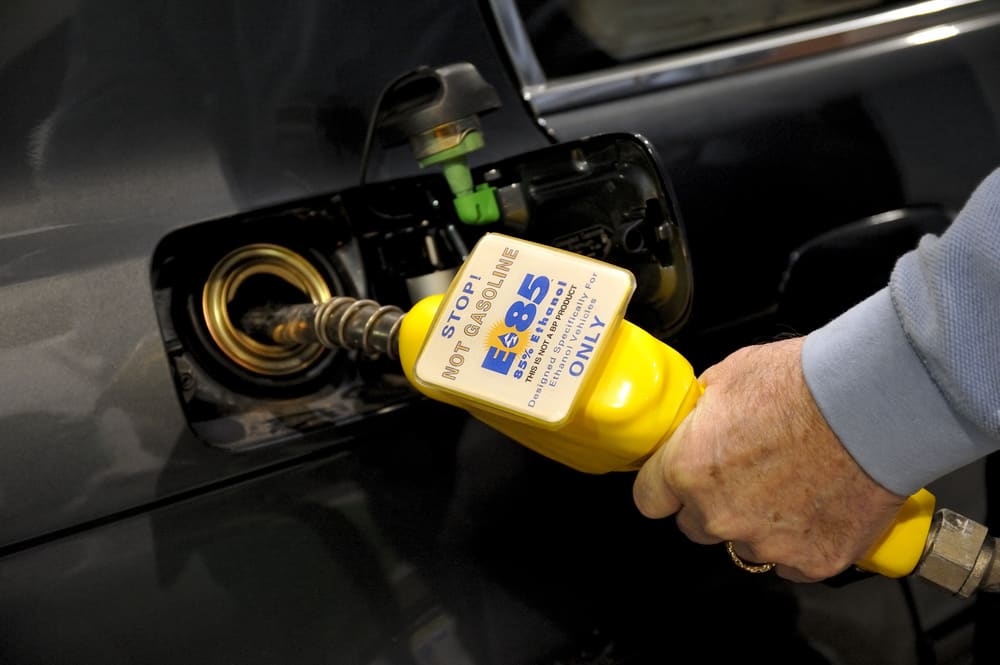

E85 ethanol is a fuel that can be used to power internal-combustion engines. Some vehicles can use E85 and gasoline, while others are tuned for E85 only. E85 is named as such because it is 85% alcohol. The other 15% is gasoline or other liquids used to fill in the volume. The alcohol used in E85 is available from a variety of sources, so it is simple to produce anywhere in the world.
Why use E85 ethanol?
In areas where it is difficult or impossible to import enough gasoline, E85 ethanol is the only viable solution for fuel. E85 can be made from a variety of materials, including sugar cane, corn, and waste cellulose (abundant in areas where there is a lot of agriculture). There are some other advantages that E85 has over conventional gasoline:
E85 is a higher octane than gasoline, so it can be used with higher compression engines. Specifically, vehicles that use forced induction can get a significant power boost from E85.
E85 produces less CO2 gas in exhaust fumes.
E85 has the potential to be produced more sustainably than gasoline.
Flex fuel vehicles can use both E85 and gasoline, making them more versatile than regular vehicles.
E85 vehicles
Vehicles that use E85 ethanol as fuel are either tuned specifically for use with ethanol or are "Flex Fuel" vehicles. Flex Fuel vehicles can use either fuel, as their engines are able to adjust to optimize the drivetrain for either fuel. Gas-only vehicles need different parts in the fuel system and different tuning to be able to use E85. Since E85 is conductive, unlike gasoline, it can cause problems with the fuel pump. Certain metals may corrode when in contact with ethanol as well.
E85 controversy
While there are numerous advantages to E85, some controversy has arisen with its increasing popularity in the US. In the US, E85 ethanol is mainly made from corn. Corn is also used in a number of food products. Opponents of E85 disagree with using potential food to make fuel.
Also, while E85 does produce less CO2 than regular gas, it produces other greenhouse gases in higher volumes. It is often advertised as a more eco-friendly alternative to gasoline, but that fact is contested by some.
E85 is a viable fuel and as it becomes more and more sustainable compared to gasoline, its popularity will increase.



